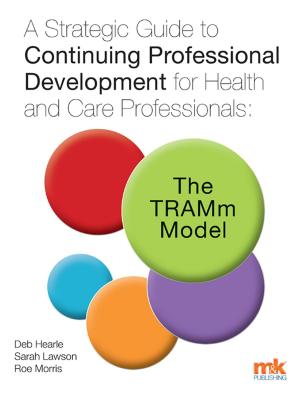Perinatal Mental Health: A clinical guide
Nonfiction, Health & Well Being, Medical, Fiction & Literature| Author: | Colin Martin | ISBN: | 9781907830495 |
| Publisher: | M&K Update Ltd | Publication: | February 28, 2012 |
| Imprint: | M&K Publishing | Language: | English |
| Author: | Colin Martin |
| ISBN: | 9781907830495 |
| Publisher: | M&K Update Ltd |
| Publication: | February 28, 2012 |
| Imprint: | M&K Publishing |
| Language: | English |
The prospect of parenthood represents a milestone in anyones life course and is often a period of stress and challenge. There are a number of significant mental health problems that can occur during the perinatal period, the consequences of which can be both enduring and, occasionally, life threatening. However, irrespective of the specifics of the clinical manifestation of a disturbance, the distress and misery that accompanies it has significant ramifications for the mother or mother-to-be and her partner and family. This book is arranged in themed parts that represent key aspects of facilitating access to effective clinical management during the antenatal and postnatal period. These are covered in the first two Parts One and Two of the book. Part Three examines the pertinent areas of concern regarding partners, a critical but often neglected area of concern within the sphere of perinatal mental health. Part Four explores the social dimension of perinatal mental health, covering areas as diverse as the role of social workers to the psychological processes of obedience within the clinical setting. Part Five focuses on key themes of assessment and psychological interventions, a complex and often misunderstood area. Part Six highlights emerging issues of contemporary relevance, often challenging to the veracity and depth of the current evidence base but of increasing clinical and academic concern. Finally, Part Seven considers the broad spectrum of child health, child care and child development, often significantly influenced by the themes established and explored in the preceding parts of the book.It is hoped that this book will not only provide a handy and evidence-based book for the busy health professional, but will also promote interest and understanding of the complex area that represents perinatal mental health to a wider audience.
The prospect of parenthood represents a milestone in anyones life course and is often a period of stress and challenge. There are a number of significant mental health problems that can occur during the perinatal period, the consequences of which can be both enduring and, occasionally, life threatening. However, irrespective of the specifics of the clinical manifestation of a disturbance, the distress and misery that accompanies it has significant ramifications for the mother or mother-to-be and her partner and family. This book is arranged in themed parts that represent key aspects of facilitating access to effective clinical management during the antenatal and postnatal period. These are covered in the first two Parts One and Two of the book. Part Three examines the pertinent areas of concern regarding partners, a critical but often neglected area of concern within the sphere of perinatal mental health. Part Four explores the social dimension of perinatal mental health, covering areas as diverse as the role of social workers to the psychological processes of obedience within the clinical setting. Part Five focuses on key themes of assessment and psychological interventions, a complex and often misunderstood area. Part Six highlights emerging issues of contemporary relevance, often challenging to the veracity and depth of the current evidence base but of increasing clinical and academic concern. Finally, Part Seven considers the broad spectrum of child health, child care and child development, often significantly influenced by the themes established and explored in the preceding parts of the book.It is hoped that this book will not only provide a handy and evidence-based book for the busy health professional, but will also promote interest and understanding of the complex area that represents perinatal mental health to a wider audience.















